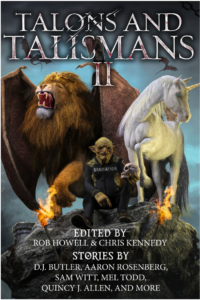Deprecated: Function wp_targeted_link_rel is deprecated since version 6.7.0 with no alternative available. in /home/shotsacr/public_html/wp-includes/functions.php on line 6121
Deprecated: Function wp_targeted_link_rel_callback is deprecated since version 6.7.0 with no alternative available. in /home/shotsacr/public_html/wp-includes/functions.php on line 6121
Last week I read the book Titans Rising which gives writers and small press publishers guidance on how to succeed in today’s rapidly changing publishing environment. The book is largely made up with successful publishers and writers answering a series of questions about themselves and their success. Besides providing an interesting cross section of experiences, it also provided a long list of resources for writers like me, who are just starting their journeys. After I finished it, I posted a review which you can read here. Since I plan on becoming a Titan, I decided to answer the same questions they did.
And here we are.
Biography
This should be good practice for the “About the Author” blurb.
 I was introduced to science fiction at a young age, courtesy of the nun running the library where I attended Catholic grade school. The library had a complete selection of Heinlein juveniles, along with Clifford Simak, Arthur C Clarke, Isaac Asimov A.E. Van Vogt and many others. My guess is that this was one of the priest’s private collections that he donated since I don’t see a Catholic diocese buying science fiction in 1969. After devouring all the SF they had, multiple times, I branched out into other genres but SF and later fantasy remained my go-to reads.
I was introduced to science fiction at a young age, courtesy of the nun running the library where I attended Catholic grade school. The library had a complete selection of Heinlein juveniles, along with Clifford Simak, Arthur C Clarke, Isaac Asimov A.E. Van Vogt and many others. My guess is that this was one of the priest’s private collections that he donated since I don’t see a Catholic diocese buying science fiction in 1969. After devouring all the SF they had, multiple times, I branched out into other genres but SF and later fantasy remained my go-to reads.
I joined the Navy as a nuclear reactor operator after the University of Tennessee advised me to take a semester time off. I had developed the bad habit of attending class only on exam days. I passed the classes, but the teachers had a problem with my approach, and graded accordingly. I spent almost nine years in the Navy, acquiring a wife and 6 kids along the way. From there, I worked a variety of jobs until I got into developing and giving industrial training in 2004 or so, which turned into a technical writing gig, as well as some programming.
Along the way, I picked up a side gig as a sports stringer for the local paper on the strength of a blog I started in 2002. This was my first regularly paying gig as a writer and photographer, since I got paid a few extra bucks if I provided pictures. The money wasn’t much, but it paid for a nice camera, some lenses and a couple of laptops over the years. Each of these jobs involved writing to deadlines, communicating with multiple audience, and required both discipline and creativity. All of this will help as I work on becoming a Titan.
A divorce and new marriage upped the kid count to eight, and they have blessed me with 17 grandkids so far.
When I’m not writing, I enjoy gaming, hiking, swimming, reading, knitting, stargazing, woodworking and making awesome barbeque for my friends and family.
Education
I’m an autodidact polymath. I love learning new things, which is why I loved being a trainer. The military has a saying, that you never really know a subject until you try to teach it, and that is 100% true. I learn new things every time I teach a class, and that’s the way I like it. As for formal education, my semester break from UT has lasted almost 30 years now, but I still plan on finishing a degree.
Eventually.
On the other hand, if I want to learn something, I just fire up the computer and dig in. Did you know that MIT has a large portion of its curriculum available online for free? Lectures, notes, assignments, everything but the textbooks. I’m working through calculus right now so I can dive into physics for real. I have a hard spot with the whole concept of dark matter. It’s too much like a fudge factor for me, but until I have the math to understand the theory, I can’t prove my suspicions.
Being self-taught is excellent preparation for becoming a Titan. It’s not always about what you know; it’s about what you can learn. I’ve learned how to learn.
Influences
Instead of talking about who has influenced me as a writer (early Stephen King, Robert Heinlein, Ray Bradbury, Robert Jordan, Harlan Ellison, the list goes on) I’m going to talk about the guy who motivate me by showing that I can tell a story that people like.
High school freshman English, we were all assigned to write a tall tale. I wrote about an Irishman who fell into a bottomless hole and wound up on the other side of the earth. Once the assignments were turned in, the teacher read them for the class, keeping the author’s names secret. As each story was read, the class reacted. One guy, Alex, became the ultimate arbiter of each story. If the story failed, in a laconic voice, he would say, “I’m still thirsty.”
When my story came up, I tried to keep a poker face, waiting for Alex’s remarks. “My thirst,” he said, “is quenched.”
That was the point that I knew I could tell a story that people would respond to. And that formed my primary goal. When I finish a story, I want to hear Alex’s voice saying “My thirst is quenched.”
Path to Publication
 I have one story out, but “a journey of a thousand miles” and all that. My first step was sitting down and talking with Rob Howell, who publishes the New Mythology line of books for Chris Kennedy Publishing. I’d met Rob before at LibertyCon, a literary SFF con in Tennessee, and we’d enjoyed talking about his books and stories. Rob is a big-hearted guy who is all about helping new writers get their start, so when I saw him in 2021 at another con, I decided to ask his advice on getting a book published.
I have one story out, but “a journey of a thousand miles” and all that. My first step was sitting down and talking with Rob Howell, who publishes the New Mythology line of books for Chris Kennedy Publishing. I’d met Rob before at LibertyCon, a literary SFF con in Tennessee, and we’d enjoyed talking about his books and stories. Rob is a big-hearted guy who is all about helping new writers get their start, so when I saw him in 2021 at another con, I decided to ask his advice on getting a book published.
He said four things.
- Start with short stories in anthologies. You can write them faster, you get the advantage of being in a book with established authors, and you show you can write to a deadline and be professional.
- Develop relationships with publishers in your field. This doesn’t mean shmooze them. It means learning what they want to publish, what they are looking for, and demonstrating that you can deliver it. Of course, a little shmoozing doesn’t hurt.
- Develop a social media presence. Even before you have fans, give them a way to find and follow you. Publishers are looking to leverage any marketing edge they can. If you’ve already built the platform, you’re ahead of the game. At the same time, you have to work the platform. In Titans Rising, there’s a story of a publisher rejecting a book, not because it was bad, but because the author didn’t show that he was willing to do the hard work of marketing the book. Small press publishers have limited resources. Don’t make them work harder than you do in promoting your work.
- Once you’ve demonstrated to the publisher that people will pay money for your work, and you’ve developed a decent sized and active fan base, then put the effort into writing longer works.
Then he told me he had an open call for submissions. I read the details, read a few books that he had published, then wrote and submitted my first story ever.
It became my first sale and my first step towards becoming a Titan
The Hard Lessons I’ve Learned
I suck at running a business. I’ve proven that to myself by failing, and I hate failing. I have no interest in running a business. Accounting, invoicing, taxes, etc, they all bore me to tears. Unfortunately, in the world of independent and small press publishing, a writer who doesn’t practice sound business management will quickly fail no matter how good their story is.
So how am I solving this?
I have friends and family members who love the business side of things and I’m enlisting them to shore up my weak areas. I can’t totally divorce myself from the business side of the house, but I can reach out and get help from people who are better at it than I am.
Come to think of it, that advice applies more generally as well. If you find a weak spot, shore it up yourself as best as possible, and get help from people who are better than you.
Where am I Now?
I’m at the very beginning. I have one sale, and I’ve got requests for more stories from a couple of publishers, and I’m constantly looking for more open calls for submissions. I’m still working on a couple of novels, but they are on the back burner while I get stories out in circulation. I have a fast-approaching deadline for the Baen Fantasy contest and I need to finish and edit a story for that. I’m building my marketing platform (Hello marketing platform!) and planning con travel, not just for fun but to continue networking with Titans and other up and coming writers/publishers.
Where do I See Things Going?
This question has two answers.
For me, I expect to place a few more short stories in open call submissions. The next step will be when I’m asked to contribute directly, rather than through an open call. The next step is to finish and submit a novel and get it accepted. Whether it’s a traditional publisher or a small/Indy press depends on what is happening by then. As an alternate, if I can’t get any traction, but I still think the novel is good, I’ll self-publish. With the help of some good friends of course. As a look at the logo for this site shows, my graphic design skills are somewhat lacking.
And then, it’s off to the races. If I do it right, and that means writing, publishing, and marketing, then I’ll make enough money to do it all over again. And again. And again.
If I don’t do it right? Figure out what I did wrong and try again. And again. And again.
Persistence is the key.
Contact Info
rich@richhailey.com
www.richhailey.com
Facewbook and other social media to come.


Leave a Reply
Want to join the discussion?Feel free to contribute!